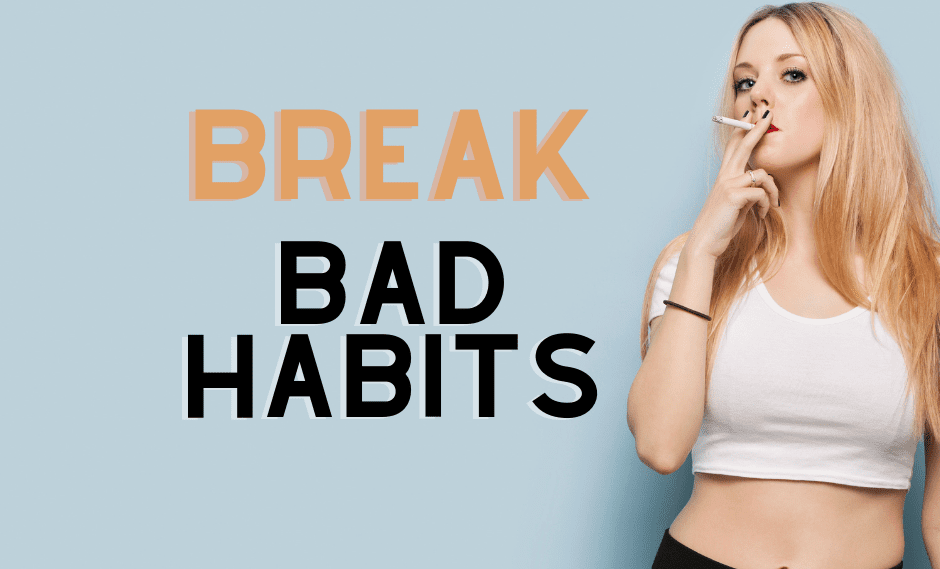284Views 0Comments

Do you review every feed on your social media account without a second thought? Have you found yourself buying chocolates every day? Do you worry about making a doughnut your daily routine?
Habits are a fundamental part of life. We are all dependent on our daily routines to a certain degree. Some of them can be beneficial; however, some aren’t as good, and some are detrimental, for example, doughnuts.
The author provides excellent advice and tricks to get rid of habits that no longer serve you and create more positive ones through building habits. He also provides valuable details about the concept of paradigms, how they develop and change, and how to help you achieve your goals.
Today, we will discuss the following.
*An approach to creating new paradigms, such as making it a habit to rise earlier in the day.
*Why triggers you to have more sweets when you are stressed ;
*Simple apps available for smartphones that can help you keep your good habits.
According to Bob Proctor Paradigms are a multitude of habits that guide every move you make. They affect the way you eat, the way you walk, even the way you talk. They govern your communication, your work habits, your successes and your failures.
Our daily routines govern our lives.

Have you ever realized you are on autopilot mode most of the time? While getting ready for showers and brushing the teeth, we never worry about doing it, not even once. Why? Because we’ve crafted these basic routine tasks into routines, which is routines we’ve done so often that we can complete them by ourselves. Unconsciously.
In reality, most activities we engage in throughout the day are governed by the habit and hence done unconsciously.
We’re more prone to slipping into executing the habits during times of stress or pressure.
This was shown in a research study conducted by UCLA that showed the tendency for us to fall back into our old routines when we feel over-extended, tired or stressed. This is the case regardless of whether these behaviours are healthy or not.
When we are under stress or pressure, it affects our ability to make the decision. And this generally turns on the auto-pilot mode.
However, they aren’t something that we must choose to. They are a part of our lives every day. When we’re feeling stressed and unable to make the best decision, and we’re unable to make a decision, we return to the old routines. If you’re constantly browsing the web or social media or eating doughnuts during moments of stress, these are likely routine behaviours. Maybe you’d prefer to have less of them!
If so, there’s good news that you can alter your habits. Changes in. Habits are having neural pathways that are a part of your brain. They get thicker when they’re used, and then they weaken when they are not used. You develop your routines, formed by repeated actions until they feel easier to follow and less complicated.
The initial few weeks will be challenging if you’re looking to wake up earlier because neural pathways aren’t completely formed. However, with time, your brain will begin to improve the connection between awakening and getting out of bed, and so the routine of rolling over and going to bed is less frequent and less efficient.
In just a few minutes, the neural pathways you’ve created be complete, and you will be awake and ready to get moving.
Our brains are equipped with an effective mechanism for forming habits.

Imagine taking an informed choice about each item you purchase from the supermarket. Making the grocery list can be a long time! This is where your habits come into play.
One area found within every person’s brain, referred to as the basal ganglia, is charged with programming our routines so that we don’t even consider this. Even in an elegant ice cream shop that offers a variety of flavours to choose from, it is normal to choose the one we are familiar with, like vanilla.
Why is that? Because, thanks to our basal ganglia, it’s a habit that we’ve become accustomed to and a thing that we instinctively want to do. As we go through a routine, the more it’s recorded by the basal organ it becomes increasingly pronounced.
For instance, when you repeat the procedure of switching on your computer, and then connecting with your Facebook account, and then shutting off your computer, the brain will be operating on autopilot. This is why we might end up on Facebook without even realizing it!
Basal Ganglia could be so powerful that it could take over the brain responsible for conscious, rational decisions known as the prefrontal cortex. In contrast to the basal ganglia, this brain is concerned with the long-term consequences of actions and takes abstract concepts like morality.
However, the brain’s prefrontal cortex has one significant defect, and that is that it gets tired very quickly.
Making the best decisions is a major consumption of energy. While it might be hard to resist the ice cream you’ve got kept in the freezer most of the time in this time of the year, the likelihood is you’ll find that your prefrontal cortex in your brain will cease to function after a few hours of exhaustion. At this moment, the basal ganglia dominate, and you’ll soon be sitting in front of a massive cup of cream and cookies!
Willpower rather than motivation is the best way to build positive habits.

Motivation is an excellent thing, but we are most motivated to do things we love, for instance, going on vacation.
Motivation has its challenges, especially because it changes depending on the mood we’re at. If you get up and feel good, you can perform 20 push-ups before breakfast, but it’s more challenging when you’re suffering from an alcohol-related hangover!
Additionally, motivation decreases as we continue to do something, as it gets dull.
Motivation alone does not suffice to create positive habits. But there’s a tool that helps people make positive changes in their lives. What is this tool?
It’s Willpower.
Many psychology experts recognize willpower’s benefits. One professor even had his students focus on their willpower for about two weeks to improve their class posture. They not only improved their posture in class, but they also displayed more self-control in the different areas that they are in!
Each time you begin an empowering activity for you, such as meditation each day, you build your willpower muscles. This muscle can be used for other tasks, like making daily freshly prepared meals, staying in contact with your family, and any other task you’d like to achieve. Willpower, like motivation, is solid. It is capable of being built up, after which you’ll be in a position to trust it once you’ve achieved this.
Mini-habits are an efficient choice for people who have the willpower.

It’s certainly possible to start the routine of doing 100 push-ups every morning. However, you’re likely to find that your stamina will decrease after you’ve reached 30. Willpower is amazing, but it doesn’t look so when we first begin working on it.
How can we develop our willpower while starting from the beginning?
The solution lies in small routines. There is a way to prevent the loss of willpower simply by setting small and even absurdly small goals. The most significant threats to our willpower are the illusion of stress, difficulty, and fatigue. Why not choose an objective that requires only the smallest level of exertion?
The basic objective you establish eliminates any doubts regarding the difficulty. It’s not an overwhelming enough challenge that you be exhausted. It’s an effective solution for those who lack willpower.
Small habits can also be in moving, and once you’ve started moving, it’s easier to continue as Newton’s first law states that the object in motion will not change its speed in the absence of an external force exerting force on it.
The biggest challenge we face is indeed the one that we’re going to face when we move from inertia and moving. If you have a plan which allows you to begin by introducing a tiny amount of effort to get started, you’ll ensure that your journey begins smoothly. You could be amazed to find that you’re better than what you intended to!
You can, for instance, opt to do five push-ups even though you’ve decided to do just one. Although it may not appear to be a lot on paper, you’ll be amazed by the happiness you’ll feel for yourself!
Mini-habits can provide several additional advantages.

Have you ever been in a situation where you want to date someone but never had the course to ask them. Try taking small steps and walk towards them. A small step again. Repeat it. And you will see yourself facing them opposite to you. In the end, you may both end up on a dance floor. You can see that there’s an ongoing conversation between you.
In doing things that you’ve never thought to do before, you’ll see how little habits can increase confidence in yourself. The capacity to keep confidence in ourselves diminishes over time because of years of unattainable expectations from our teachers, parents, and, eventually, ourselves.
The best part is that mini-habits give you the chance to experience the joy of success instead of failing – often throughout each day. If you establish goals that you’re capable of achieving, you’ll feel satisfied regardless of how minor your achievements might be.
Consider this as a reference to the reality that you’ve never yet achieved your primary goal each daily. It’s easy to determine the method that keeps you focused! Don’t try to become a world-renowned pop superstar shortly. Instead, you should play the piano for five minutes every day.
Simple habits can be very effective in making you feel as though you are in command. Humans don’t like feeling out of control or being the responsibility of others. We prefer to make our own decisions, and this will make you happy.
A study conducted in Denmark found that 90 percent of employees are satisfied with their work and can also make their own decisions.
A major goal that requires you to dedicate all your energy and time to helping those in need can drain your time and energy until you get tired of the concept. A smaller plan, like offering identical amounts to all who ask for donations, is simple but creates an emotional connection that makes you feel happy while establishing your path towards becoming a more generous person.
Create and plan your little habits with diligence.

We’ve discovered the benefits of mini-habits, and Now is the time to develop your strategy. Where should you start?
First, select your habits with care. Start by making a list of things you’d like to attain in the course of your day-to-day routine. Studying the language you want to learn and read more about might be beneficial, enhance your math abilities, or improve your health.
Consider what appeals to you. This will help you decide whether you’re motivated properly. What are your motivations that, for example, you believe you’d like to learn some additional languages? Do you happen to be an avid traveller and enjoy various cultures, you’ve got great motives.
If you’re looking to impress your friends and colleagues, consider whether you’re really under pressure from other social circles. Do not allow this to affect your behaviour! Habits should only be influenced by the goals you’d like to accomplish.
After you’ve compiled your checklist of positive behaviours, it’s time to develop mini habits to accompany. If you’re keen to learn French begin by setting your goal to master just one french word daily. If your small routine is so insignificant that it’s unreal to you, then congratulations! This is exactly how they should be.
Mini routines needn’t be any trouble to master in any manner. They shouldn’t be so tiny, and you’ll be able to integrate various elements into your routine, starting with only two or three times per day. Once you’ve established your mini-habits, you can define and document the indicators of your routine.
Habit cues can be signals to tell you it’s time to get your mini routine in order if you’re looking to do your exercise before breakfast. The time of day or the fact that you’re hungry may be signalling to begin your routine.
Keep track of your progress, and remember to award yourself an incentive.
Mini routines are simple to master. Don’t limit yourself to an 80% success rate. Try to achieve 100. The most efficient method to avoid slipping in your routine or switching it is to document your actions. Remember to keep track of every step.
A study of psychology carried out in 2013 found that every thought can be more powerful within your mind when you record your thoughts. Recent apps such as ‘Lift’ or ‘Habit Streak Plan’ are perfect for recording your daily routine. Alternately, you can go the conventional route and utilize an extensive calendar to track your progress.
Whatever method you choose, it is essential to be thinking about it throughout the day. So, you’ll be reminded of your routine, be on track with your achievements, and build more positive habits as you move along.
When you’re done, you’ll be on the right path. It may be that you get more than you had originally thought if you reach your goals of writing 50 words and then writing 500 words. These bursts of energy are wonderful, but don’t get confused!
A sudden change in your ability in writing words to 500 won’t assist you, and you’ll soon find it hard to maintain the pace, even though it looked easy the first time. If you’re capable of achieving your goals, pat yourself on your achievements. However, make sure you consider it an additional benefit and not as motivation to continue working.
What happens when writing 50 words sound boring? It’s okay. This means that the little thing you do is a routine. It’s something that you can perform automatically and without effort to perform the task. That’s something to acknowledge, and be sure to reward yourself!
It’s not just the ultimate goal that your actions can get you there that’s important. Establishing a routine for your day that has a variety of beneficial routines is something that you ought to be proud of.
Conclusion

Instead of trying to motivate yourself to achieve an impossible goal instead, concentrate on tiny actions. When you set up a regular schedule of positive actions, You’ll be giving yourself the chance to enjoy tiny victories each day as you make significant progress toward your goals.
Practical advice:
Get inspired!
Are you trying to create your mini-habits but are not sure of the best ideas? Check out minihabits.com for some ideas. After you’ve selected three or two habit types you’d like to keep to, don’t lose the ones you’ve chosen. Put a reminder on your fridge or in the bedroom. You can then try the routine for a couple of days and be aware of how you become more active!
Additional reading suggestions The most efficient way to organize your time written by Jocelyn K. Glei
Manage Your Day-to-Day is an accumulation of advice tips, concepts and ideas from famous creators. It gives readers helpful suggestions on designing efficient work routines, keeping their attention, and unlocking their creativity.
Have you got feedback?
We’d like to know your thoughts on our work! Just drop an email to remember@blinkist.com with the title of this book as the subject line and share your thoughts!

